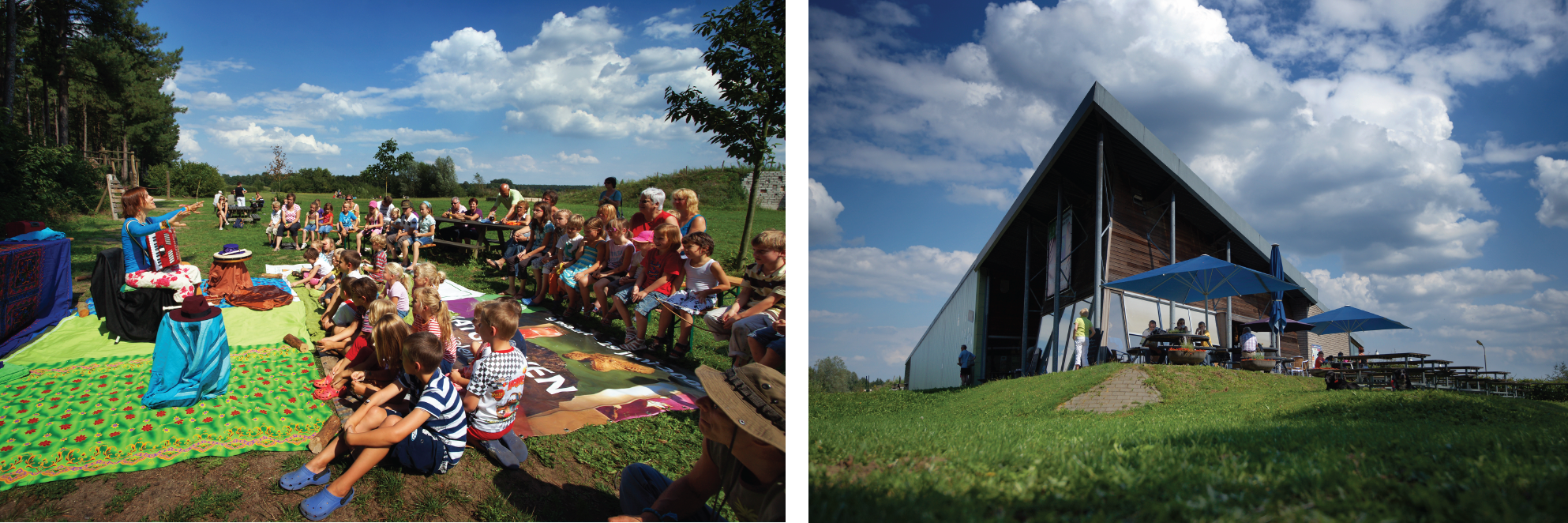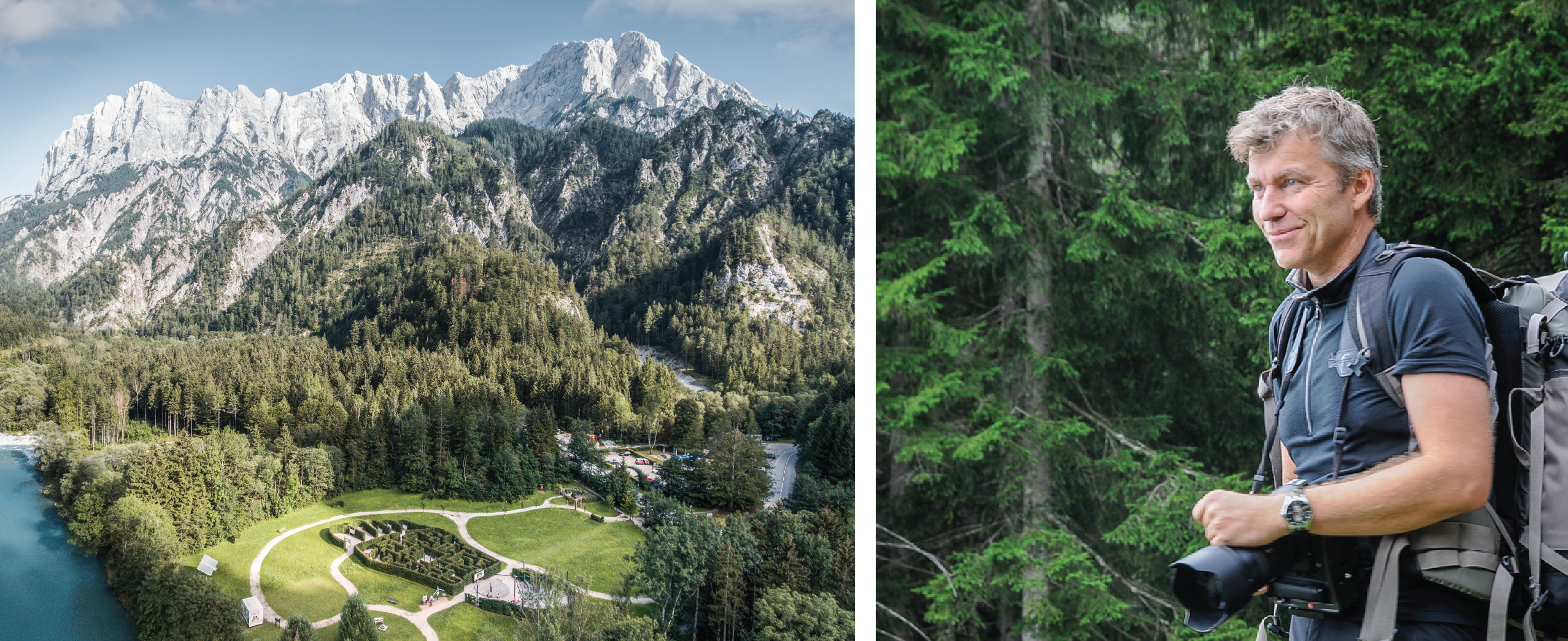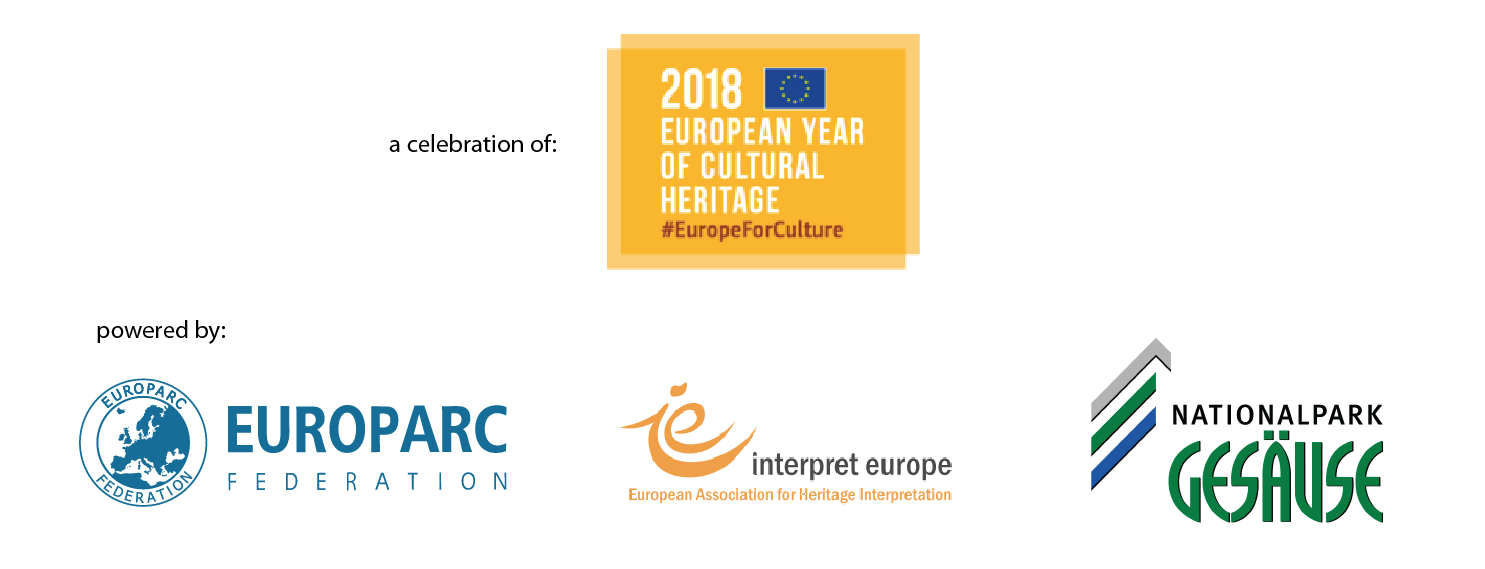Cultural Identity is rooted in the connection to the land and therefore interpretation of natural and cultural landscapes is something inherent in most protected areas of Europe. Whether this be in the form of panels, exhibition in visitor centres or art installation, helping visitors understand their cultural heritage and connect to nature is fundamental to European parks.
On the occasion of the official launch of the
European Year of Cultural Heritage, the
EUROPARC Federation and Interpret Europe announced a partnership focused on the role of natural heritage to explore cultural identity. The organisations will be
investigating new ways on how heritage interpretation can encourage citizens to reflect upon this important relationship.The webinar will be introduced by Carol Ritchie, EUROPARC Executive Director, and will set the scene on the role of interpretation for the promotion of our Natural and Cultural heritage. We will have a first insight given by Interpret Europe, on how to increase the impact of heritage interpretation, and then look at practical interpretive experience from an Alpine national park.
Throughout the year, members from both organisations will have the chance to work and learn more about this topic in four key events across Europe:
• Seminar ‘Natural Heritage as Part of Cultural Identity’ in Siggen, Germany
• Interpret Europe Conference ‘Heritage and Identity’ in Kőszeg, Hungary
• EUROPARC Conference ‘European Parks: Inspired by the Next Generation’ in Aviemore, UK
• Presentation of the key project results at a seminar in Brussels, Belgium
Case Study 1

Maas-Schwalm-Nette Nature Park – left: Theater in the Park, by A.Raedts ; right: Visitor Center, by M. Hectors
Engaging citizens through heritage interpretation?
by Thorsten Ludwig, Interpret Europe, Germany
In 1871, John Muir described interpretation as a way “to get as near to the heart of the world as I can”. Searching for meaning in natural heritage was key, and parks were the cradle of the interpretive approach. But what does this mean in our times? To what extent do the experiences which we encourage and the stories which we reveal in protected areas influence the identity of European citizens? Where are the strong bonds between natural and cultural heritage and can interpretation in parks even help to meet social and political challenges?
Thorsten Ludwig is Managing Director of Interpret Europe, the European Association for Heritage Interpretation. He holds an MSc in Interpretation: Management and Practice and launched Bildungswerk interpretation as the first consultancy for interpretive training and planning in Germany 25 years ago.
Case study 2

(left) Gesäuse National Park, Austria, photo by Stefan Leitner; (right) Martin Hartmann, case study presenter at the Webinar
From theory to practice: Interpretation in Gesäuse National Park
It all started with a 3-hour introductory event. Now, Interpretation is an essential part in trainings, exhibits and panels in the Gesäuse National Park. Martin Hartmann will share how Interpretation is interwoven in the daily work of Gesäuse National Park and the umbrella organisation National Parks Austria.
Martin Hartmann is head of the department for nature and environmental education in the Gesäuse National Park, head of the photography school Gesäuse and president of the VTNÖ (Association for Animal and Nature Photography Austria). As a national park ranger, the forestry scientist and conservation area manager works with Protected Areas since 1996, where he accompanied the development of the Donau Auen National Park.


